
Imposter Syndrome Strikes Again: What, Why, & How to Fight It
Last week I told you all about volunteering at the ultramarathon in Raleigh—how much fun it was, how I got wrapped up in the strong sense of community, and how it left me itching to set a new big running goal for myself.
There was something else that came up at the race that I didn’t talk about in last week’s post. Not wanting to subject you all to a 10-page read, this thing didn’t make the cut. But I do think it’s worth addressing since so many of us suffer the same malady.
I’m talking about Imposter Syndrome.
The term “Imposter Syndrome” has become buzzy and worn for wear as of late, but it’s been around since the 70s. It’s a powerful phenomenon, one that can take hold of even the most confident or successful among us—even when we are fully aware of its presence.
It’s annoying. It’s a mind-fuck. And if we’re being honest, it affects our performance and our sense of self-worth.
Imposter Syndrome reared its ugly head at me last weekend at the race. And since I’m introspective—or self-absorbed, depending on who you ask—I’m going to talk about it.
Plus, it’s my blog and I do what I want.
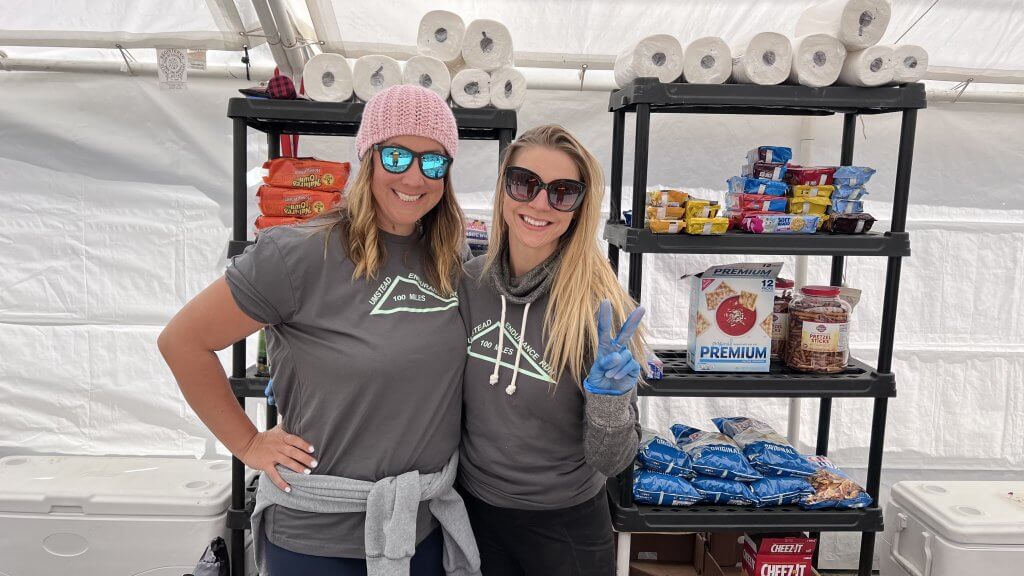
Volunteering at the ultramarathon was so much fun, but I found myself feeling like an imposter.
Background
This bout of imposter syndrome came about on the ultramarathon track. So, it’s necessary to start with a little background on my experience with running for context. After that we’ll get into all the gooey, icky muck of imposter syndrome. The good stuff, right?
What’s a “Runner”?
I don’t remember what prompted me to start running in high school, but almost every day after school, often after sports practice, you could find me running the same three-mile course.
I didn’t listen to music while I ran. Instead, the afternoon traffic was my preferred playlist. There was something comforting about the rhythm in my body. Right, left, right, left, one, two, one, two. I liked daydreaming while I ran, or thinking out problems, or organizing my teenage thoughts. To this day this is one of my favorite things about running. Free time to be alone with my thoughts.
In a world where I am always multitasking—working on my blog while working my day job on the airplane, hurrying to get my post published before dashing off to do some studio work, working out my budget while catching up on Marco Polo with a friend, while on a work layover—there is something so nice about doing just one thing.
Running is forced time off. And it’s the closest I get to zen.
In my twenties running became the easiest path to fitness for me. I like it and it doesn’t require hand-eye coordination, which I am sorely lacking. The road races started in my late twenties; 5ks and 10ks, and I ran my first half marathon in Key West, at age 30.
It was the longest I’d ever run up to that point. And since apparently I could do it, I signed up for more.
I started to think of myself as a runner. But for some reason I felt uncomfortable calling myself that.
I still didn’t feel comfortable calling myself a runner after the second half marathon in Boston, or the third in Newburyport, or the one in Portland, Maine.
I felt running in my bones. But when I was around other runners—who had run more than me—I tucked my tail between my legs and shifted my language. “Well, I’m sort of a runner.” “I love running.” As if it were okay for me to love the act of running, but adopting the label of runner was ‘really getting ahead of myself’ or something. I began to feel like I wouldn’t be able to call myself a runner with confidence until I ran a full marathon. Not without feeling like an imposter, anyway.
And then I did it. I ran the full marathon, 26.2 miles. I got a time I’m proud of, and as a matter of fact, it is one of the top moments of my life, even today. ‘My body is made for this’ was all I could think while speeding up in my last mile toward the finish line.
I was a real runner. A marathoner. I’ve achieved the thing I set out to do. This fulfillment of my dream carried me for years.
And yet…
Want to read more about running a marathon? Click Here That One Time I Ran A Marathon
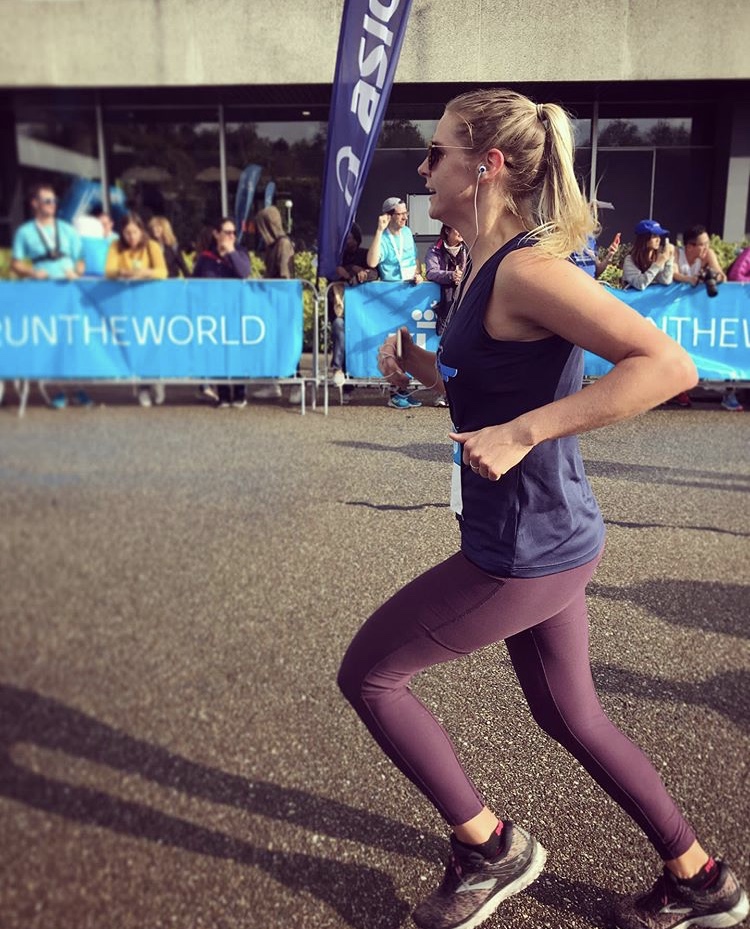
definitely NOT faking it.
What’s “Real”?
Last weekend, being around other runners at the ultramarathon who were taking on such an incredible feat—50 miles, 100 miles, for fuck’s sake—I couldn’t help but feel that same imposter syndrome creeping in.
“Yeah, I’m a runner, but…”
“I’ve done one full marathon, but I’ve never run a race like this.”
Qualifying each statement about myself. As if someone would have asked follow-up questions and scoffed at my unimpressiveness. HA! I KNEW you weren’t a real runner!
My brain goes on this same swirly route when I say that I’m a writer, then quickly add “—I have a blog” or “—I’m working on a book project”, lest I sound too sure of myself.
“I’m not, like, a real writer,” my explanations say. “But I’m trying to be.”
And these things—being a writer and a runner—these are two things about which I am certain. Completely, unquestionably certain.
I have been writing since I was a small child. Seven, I think, is when I began doing it for fun and my teachers started to notice a seed of potential. Writing is far and away the thing I’m the best at. It is the thing that comes naturally, that propels me to work in my time off. It is what makes me feel most like me.
Running is sort of the same. I’ll probably never be an Olympian, but I love running. And I run.
And doesn’t running make you a runner?
And doesn’t writing make you a writer?
Doubts
These things I know to be true in my logical brain. But somewhere in the crevices of female conditioning, or growing up lower middle class, or a twisted knot of misfiring synapses, there are parts of me that will believe, despite evidence to the contrary, that I’m not good enough. I’m just an imposter.
Or I’m good, but not that good.
It’s bewildering, this ability to ignore my successes and explain away my talents. To shrink and self-deprecate. To see failure instead of slow progress.
“It won’t win the Pulitzer,” I say to my closest friends, before asking them to read one of my essays. “But I think it’s pretty good.”
“It’s not a Grammy-winner, but I think it sounds pretty good” I say as I send over the (really good) song I’ve just finished.
As if being proud of my work is equivalent to bragging or believing myself to be the best in my field.
And herein lies the problem.
At the root of it all, I believe that for my work to be worthy it should be the best in my field.
So dumb, I know. Impossible, I know. Crazy-making, for sure. A lot of pressure? Yes. A LOT of pressure.
If you’re not the best, my inner voice taunts, why do it?
It’s a ridiculous sentiment since 1. “Best” is subjective, and 2. If there was only one “Best,” then by my fucked-up logic, no one else should be doing the thing.
One singer. One runner. One painter. One writer.
This isn’t the world we live in, and I doubt if anyone would want to live in that kind of world. I try to remind myself of this. Sometimes it works. Sometimes the words feel hollow and hard to believe.
Imposter Syndrome, man.
My therapist calls me well-adjusted because I can see these problems in my thinking and address them. Sometimes I think I’ve got her fooled. If you can see your own shitty patterns but still fall into the same tricky brain traps, then are you really doing so well? Is knowing half the battle or is that what people tell us so we don’t feel bad?
Imposter syndrome even follows me into therapy.
I have friends who feel like imposters in the realm of homeownership. Their level of income. Being business owners. Motherhood.
Women in high-power jobs often feel like imposters—CEOs, lawyers, economists, and politicians. Anyone who has carved a path of prominence or success in their career.
The problem with Imposter Syndrome is that the experience of doing well at something
does nothing to change your beliefs.
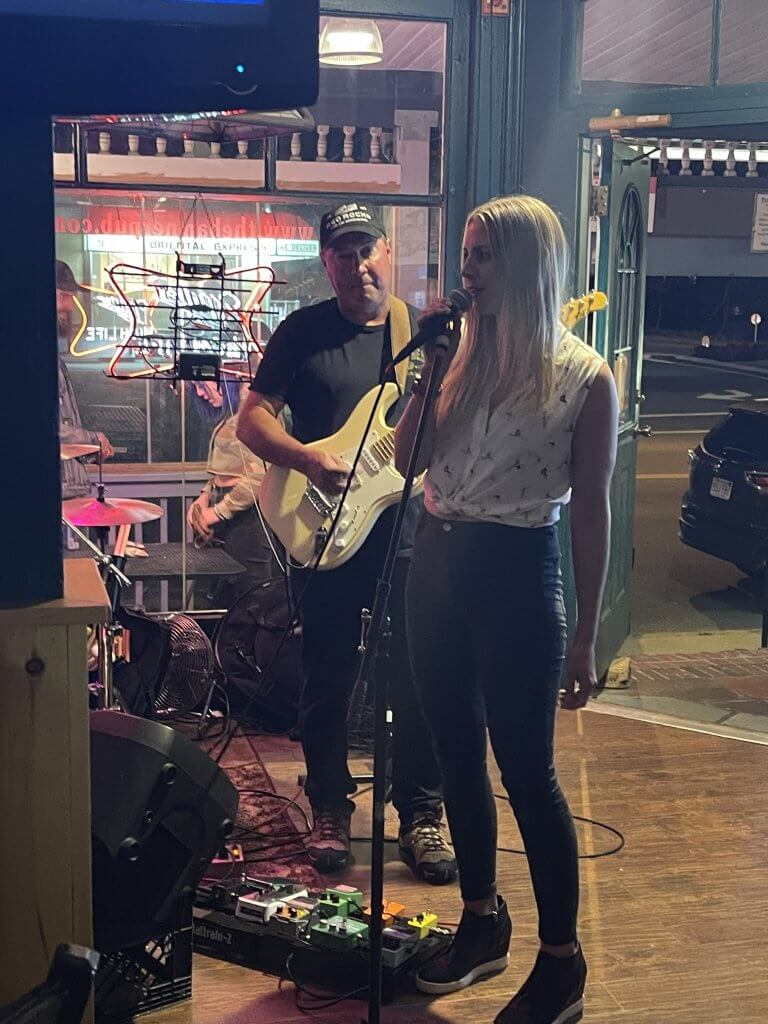
What, do I think I'm musical or something?
What the Hell is Imposter Syndrome?
Imposter Syndrome is the feeling that you’re a fraud or a phony, that you’re unqualified for the role in which you find yourself. People suffering from Imposter Syndrome often feel like they’ve “tricked” their way into said roles and fear being found out.
Imposter Syndrome can last for short periods of time, like right after beginning a new job, or can be a life-long struggle. Yuck.
According to this article in Verywellmind.com, some tell-tale signs of imposter syndrome include:
- An inability to realistically assess your competence and skills
- Attributing your success to external factors
- Berating your performance
- Fear that you won’t live up to expectations
- Overachieving
- Sabotaging your own success
- Self-doubt
- Setting very challenging goals and feeling disappointed when you fall short
Because Imposter Syndrome is about your frame of mind and not about the actual task, role, or your qualifications, as the article states “The experience of doing well at something does nothing to change your beliefs.”
Greeeeat.
I love hiking, but I'm not like a real ``hiker``

Also me:
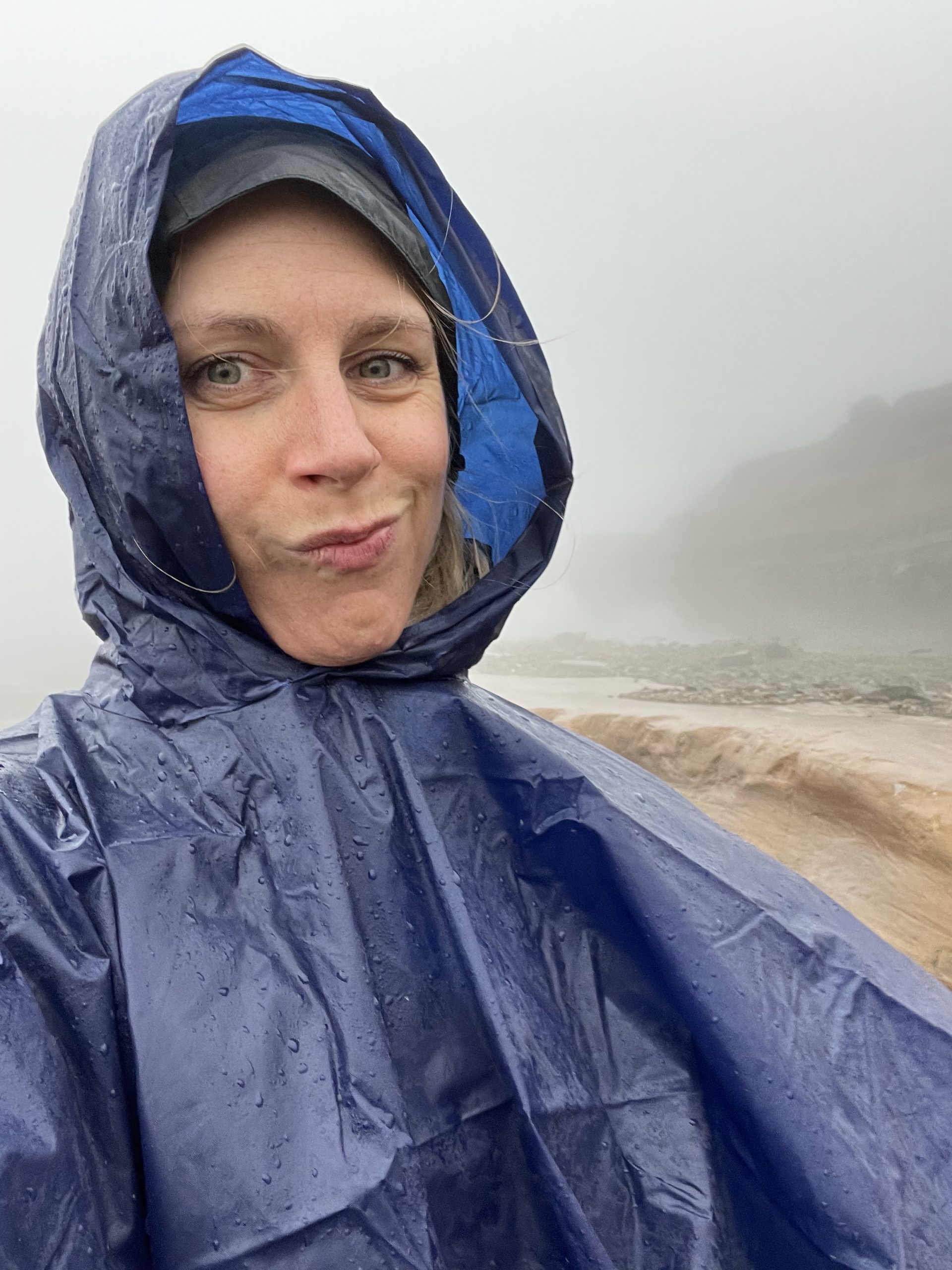
Top of an 11-mile solo hike, after trudging through the wind and rain, standing right next to a glacier.
What The Hell Do we do about it?
Combatting Imposter Syndrome
It’s not always easy, and you probably can’t change your mind overnight, but there are some things we can do to combat Imposter Syndrome.
Reminders
We can remind ourselves, for one thing, as corny as that sounds. “I deserve this.” “I am a writer.” “I got this job because I’m the BEST candidate for the job.”
Running a marathon was one of my proudest accomplishments, but my perception made it look smaller when I was around others who run more.
I had to remind myself: I am a runner. My body is made for this. I am good at this. I love running, and that makes me a runner.
When I think my writing career hasn’t advanced “enough”, that I’m not where I “should” be, I remind myself: You are writing 5-10 pages of content every single week. Without fail, and of your own accord. You are doing the thing you love to do. AND, wildly, happily, people are showing up to read your work. (Thank you!)
You are writing. You are a writer.
Roots
It is absolutely nuts to have our ideas about ourselves, our pride in our work, our sense of self worth determined by other people. And yet we do it.
It’s difficult to avoid in the digital age. And aspiring to be like someone else is not even necessarily a bad thing. Inspiration is great. But our opinions of ourselves must have some kind of rooting. We can’t just be overblown every time we meet a more famous writer, a hotter Instagram influencer, a wealthier investor, or an ultramarathon runner.
WE must be the ones to set our own roots.
WE must decide, alone and for ourselves: What do I value? What does success look like to me? What are my talents and abilities? Am I doing things that fulfil me? Am I enjoying the things I’m doing, or simply trudging through them until I hit the next milestone?
These things seem basic, but you might be surprised when you sit down to try to answer them honestly. I might be surprised; I haven’t done it yet.
We must cultivate these roots to ensure we are growing in the right direction. (I mean right for us, there’s no real “right”.) We must continue to check in with ourselves so we don’t fall into the trap of comparison, self-doubt, and living for the approval of others. To ensure we’re not shrinking, self-sabotaging, or giving up on ourselves.
Nothing makes me feel like an imposter quite as much as posing for an influencer-style photo.
In Closing
Imposter Syndrome might sound silly, an Instagram disorder, a non-issue. But it can really affect how you see yourself and your life. It can lead to self-sabotage or cause you to sit on the sidelines while opportunities pass you by. It can lead to high levels of anxiety and even to depression. (verywellmind.com) It can affect performance in the role you’re supposedly “faking”, and it can lead to excessive work, stress, and burnout.
Also, it just sucks feeling bad about yourself. Imposter Syndrome is like wearing rose-tinted glasses to look at the rest of the world and black-tinted doom-vision when you look at your own life.
Can we just not?
To recap, two things that might help to keep Imposter Syndrome at Bay are:
- Reminding yourself of who you are, your worthiness, or whatever you need reminding of.
- Having a framework of your personal values, goals, and abilities. The deeper your roots and trust in yourself, the less likely you are to be uprooted or to wither away as the external conditions change.
I’m going to be trying these tactics myself, and with any luck I’ll feel like a big success in no time. In running, in writing, or whatever I do that feels right for me.
I hope you’ll all do the same.
Have a very happy weekend.
P.S. You’re doing great.


Hey you. Yes, you! Thanks for stopping by.
I’m Toni and I run the show here at AWheelintheSky.com. Here, we talk all things travel, flight attendant life, and random personal development bits. I hope you have all the confidence in the world and never suffer from Imposter Syndrome. But if you do, I hope this post helped you to feel a little less alone in that or at least served as a good pep talk.
If it’s your first time here, feel free to check out some of my other content. I’ve linked a few posts you might want to start with in various categories. And please consider subscribing to keep up with all of the latest. If you like what I’m doing here and want to buy me a coffee, you can now do that at buymeacoffee.com/awheelinthesky. A gift is always appreciated, and never, ever expected.
Cheers!
If you liked this post, consider:
The Girl who Couldn’t: Stories, Self-worth, & Toxic Independence
Naked & Alive: Stepping Out Of My Comfort Zone At Black’s Beach
Humaning is Hard: Set Your Cry Timer and Let it Out.
For Flight Attendant Content, try:
The 7 Most Annoying Things about Flight Attendants
My Craziest Flight Attendant Story Ever
Pay Me for Boarding: Why Flight Attendants Must Fight For Fair Pay
Need Travel Tips? I’ve got you:
6 Flight Attendant Hacks That Will Solve All Your (Travel) Problems
7 Easy Travel Tips to Help You Go Greener
6 Best Travel tips I’ve learned along the way
And if you’re into running, check these out:
100 Miles of Fun: What I learned Volunteering at an Ultramarathon
Running the Globe: Top 5 Races of a World-Traveling Runner
That One Time I Ran a Marathon…
Thanks again for coming!

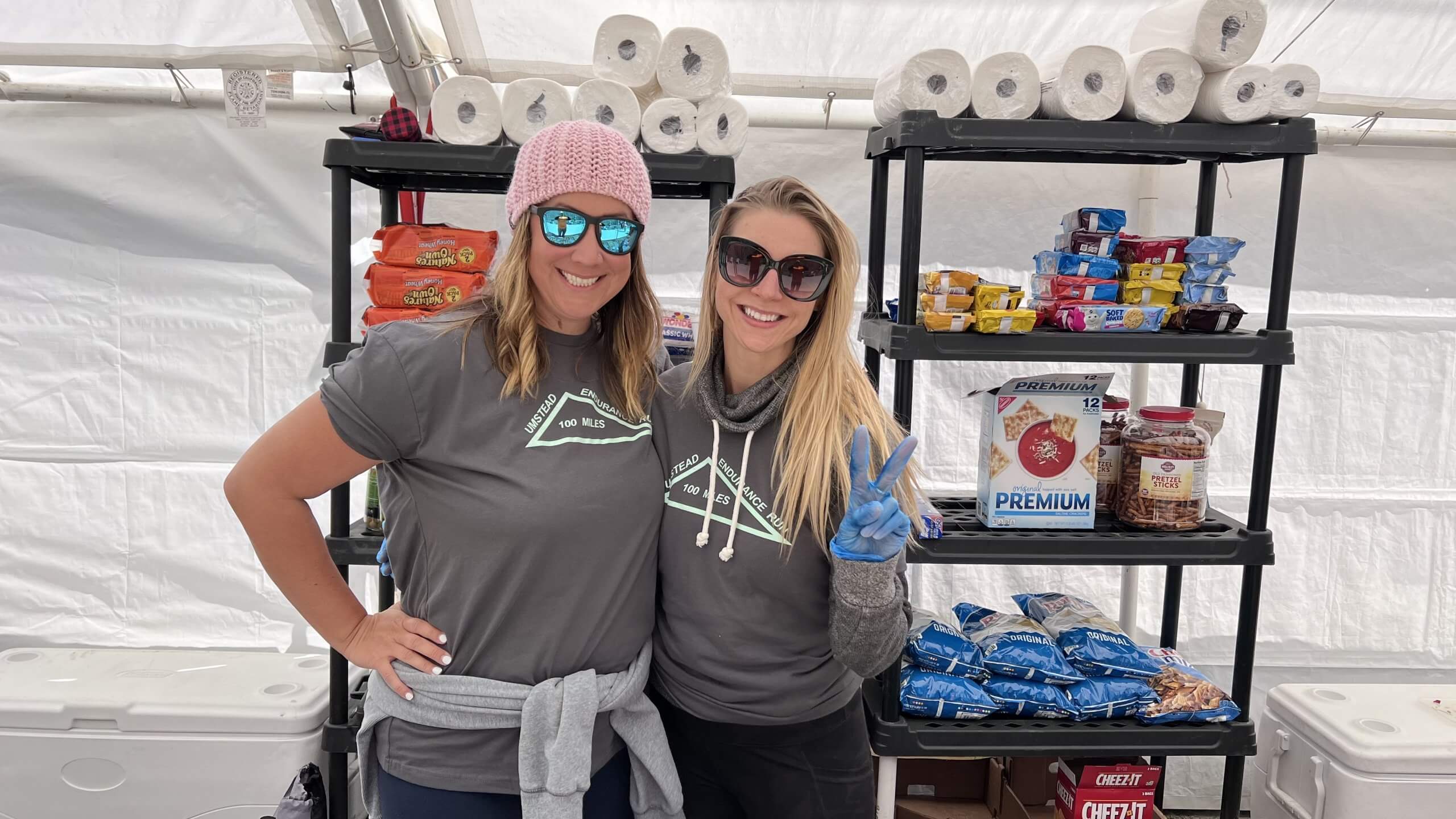

Rae
The wild thing is, you are someone who I think is pretty confident, which leads me to think imposter syndrome is something that can really affect all of us.
You know how I feel about everything you do, but just a reminder, you’re absolutely KILLING IT!
Toni
Ugh, I’m getting to this comment late, but it is so timely to see it today! Thanks, and I think it really does affect most of us. I’m not sure how long I’ll have to practice countering that voice inside before it slips into the abyss and I actually feel like I’m crushing it all the time.
Thanks for all the support and reminders <3
Corey
Imposter syndrome! Labels! Be gone! I admire your transparency about therapy. I think therapy is underrated and that outside help can do wonders for healing, self awareness, and can greatly help to unearth the truth about ourselves (REALITY). I thoroughly enjoy writing and saying positive I AM affirmations/statements daily to work my self worth muscle! This self worth work is an inside job! And we don’t have to do it alone. I am grateful to have women in my life like YOU who hold up mirrors for me and remind me who I really am. I do my best to reciprocate with love, compassion and understanding. It’s all about finding your tribe!! I’d be happy to remind you exactly who you are anytime. Great post!!!
Toni
<333 Thanks Corey! Yes, the self worth work is really WORK! It shouldn't be so hard to feel your value, but I guess decades of conditioning, past experiences andinternal dialogue can really make a mess of things. I think I'll get back into that self-love workbook you passed along to me!
Meagaan Irish
I’m getting better at fighting my imposter syndrome but it is a constant battle and this was a wonderful reminder with great insights on how to give it a one-two-punch. If I haven’t told you lately, you’re a super star and an inspiration in my life
Toni
Oh my gosh, what an amazing thing to read. Thank you so much. And YOU are my inspiration (And coach! I wouldn’t be a “real” runner without you. Ha!) I’m glad you liked the post and that it provided a little something good. See you on the race course!